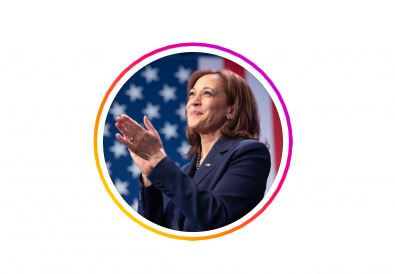The Specter of Kamala Harris: China’s Unease Over a Steady Hand
Amidst the flurry of memes and social media buzz surrounding Vice President Kamala Harris’s potential ascent to the US presidency, a palpable unease is settling over Beijing. China, accustomed to the tumultuous unpredictability of the Trump era, views the prospect of a Harris administration with a mixture of apprehension and strategic calculation. While Harris may not be a household name in China, her policy positions and potential impact on US-China relations have not gone unnoticed in the halls of power.
Taiwan’s Fate: A Focal Point of Divergent Strategies
The most critical point of divergence between Beijing and Washington remains the fate of Taiwan. China’s unwavering stance on reunification with the island stands in stark contrast to President Biden’s resolute commitment to defend Taiwan’s autonomy. While Trump’s past rhetoric seemingly aligned with Beijing’s desire for a less interventionist US, his unpredictable nature and the potential influence of China hawks within his administration have sown seeds of doubt in Chinese minds.
Harris, on the other hand, represents a continuation of the Biden administration’s steadfast approach to Taiwan. Her vocal support for strengthening alliances in the Indo-Pacific and her firm stance on the South China Sea dispute signal a potential for heightened tensions with Beijing. This has led Chinese analysts to speculate on how Harris’s Indian heritage might influence her policies towards China, a concern that underscores the deep-seated mistrust that characterizes the relationship between the two superpowers.
Economic Considerations: Taiwan Semiconductor’s Jitters
The economic ramifications of a Harris presidency are also a source of anxiety for Beijing. Trump’s past comments downplaying US support for Taiwan have already sent ripples through the Taiwanese stock market, particularly affecting the shares of Taiwan Semiconductor Manufacturing Co. (TSMC), a linchpin of the global chip industry. A Harris administration, perceived as more committed to Taiwan’s defense, could further exacerbate these concerns, potentially disrupting supply chains and fueling economic volatility.
A Familiar Foe or an Unknown Quantity: China’s Dilemma
China’s preference for a Trump victory, despite his erratic behavior, stems from a paradoxical logic: a familiar adversary, even one as unpredictable as Trump, may be less threatening than an unknown quantity like Harris. While Trump’s isolationist tendencies and withdrawal from international agreements may have weakened America’s global standing, they also created opportunities for China to expand its influence in Asia and beyond.
Harris, with her emphasis on alliances and multilateralism, could pose a formidable challenge to China’s ambitions. Her commitment to strengthening democratic partnerships in the Indo-Pacific and her vocal criticism of China’s human rights record could galvanize international opposition to Beijing’s policies.
The Gaza Factor: A Test of US Credibility
The ongoing conflict in Gaza has further exposed the cracks in America’s global leadership, eroding its credibility in the eyes of some Asian partners. While Harris’s stance on the issue remains unclear, her calls for a ceasefire and criticism of Israel’s handling of aid to Gaza suggest a potential for a more assertive US role in resolving the conflict. This could be a welcome development for many in the region who have grown disillusioned with America’s perceived inaction.
Looking Ahead: A Pivotal Election with Global Implications
As the US presidential election draws closer, the stakes for both China and the rest of the world could not be higher. The outcome will determine not only the future of US-China relations but also the trajectory of global geopolitics. Whether Harris or Trump emerges victorious, the next administration will face the daunting task of navigating a complex and increasingly polarized international landscape.
For China, the choice between a familiar foe and an unknown quantity is a gamble with potentially far-reaching consequences. While a Trump victory may offer a semblance of predictability, it could also lead to further isolation and alienation of the US from its allies. A Harris presidency, on the other hand, could usher in a new era of strategic competition and multilateral engagement, posing a significant challenge to China’s ambitions for regional dominance.
The world will be watching with bated breath as the US election unfolds, aware that the outcome will shape the geopolitical landscape for years to come.

Sunil Garnayak is an expert in Indian news with extensive knowledge of the nation’s political, social, and economic landscape and international relations. With years of experience in journalism, Sunil delivers in-depth analysis and accurate reporting that keeps readers informed about the latest developments in India. His commitment to factual accuracy and nuanced storytelling ensures that his articles provide valuable insights into the country’s most pressing issues.



